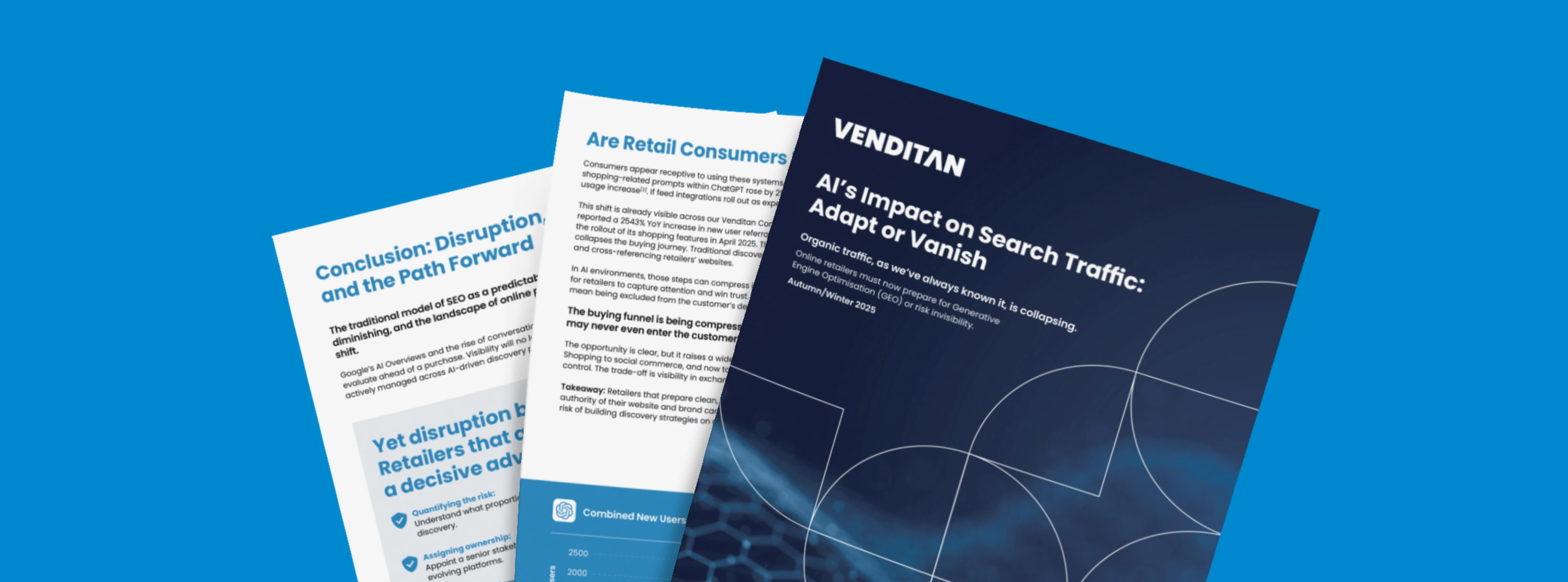The retail industry is currently seeing rapid growth in the popularity of eco-friendly shopping and the demand for sustainable fashion. The fashion industry isn’t always the most obvious when it comes to environmental impact.
However, the UN Environment Programme revealed in a report that 10% of global carbon emissions are produced by the fashion industry. Quoting that this is “more than all international flights and maritime shipping.” A further study by the International Union for Conservation of Nature tells us that 35% of all microplastics in our oceans are produced by washing synthetic clothing in our laundry.
As people are becoming more aware of the very real impacts of climate change and the social impact of clothing production on communities around the world, they’re seeking out a more sustainable way of life. This means changing core shopping habits. Opting for sustainable fashion, ethical sourcing of materials, upcycling and recycling furniture, plant-based foods, and cruelty-free beauty to name a few. The global fashion search platform Lyst saw a huge 47% increase in sustainability-related keywords in user searches. Things like, ‘vegan leather’, ‘organic cotton’ and ‘econyl’ were the most popular.
Increase in demand for sustainable fashion
Shoppers, especially younger generations, want to spend their money with retailers whose brand values mirror their own personal views. This means socially conscious, ethical, organic, natural and sustainable.
With increasing consumer demand naturally comes changes to how retailers produce and market their products and brands. We’re seeing a sharp rise in the introduction of smaller ethical retailers into the industry which has had a clear effect on larger brands to make changes too. Big names in fashion like ASOS, Prada, Stella McCartney and Doc Martens’ vegan range to name a few are making changes to their packaging, production and materials.
The competitive landscape of fashion retail is shifting away from trying to best one another on low prices and affordability to how sustainable and socially conscious you are.
Highlights in sustainable fashion
Let’s take a look at some recent sustainable fashion highlights from the big names in the industry:
- ASOS is rolling out new 100% recyclable bags in 2020. They are made from 65% recycled materials (up from the current 25%). They also introduced a responsibility edit, allowing users to filter and refine search results for sustainable garments.
- Prada sign a £43m deal with a financial services company for a 5-year sustainability loan in order to meet three eco-friendly objectives. Using sustainable material Re-Nylon, environmentally friendly designed stores and staff working requirements.
- As a lifelong advocate for animal rights, Stella McCartney’s fashion lines have always been ahead of the curve when it comes to environmental friendliness. She’s rpartnering with Adidas to create a bio-fabric tennis dress made of vegan spider-silk. The material is created by tech startup Bolt Threads who make the completely biodegradable yarn from yeast. She also works with Bolt Threads on other projects, such as mushroom leather. This can be dyed using tea – creating beautiful handbags free from animal derivatives and harmful dyeing agents.
- More fashion houses ditch the fur. The past couple of years has seen the likes of Gucci, Versace, and Armani leave fur behind in favour of more ethical products.
- H&M run a global Garment Collection programme that allows customers to bring in bags of clothing (not just H&M brands) for recycling. The incentive is a £5 voucher to use on your next shop. They also sell a sustainable clothing range.

How you can make an impact?
It can seem a big job to embark on a more sustainable journey for your business. However, it’s important to remember that even small, easier to implement changes can make a big difference.
Focus on recyclable packaging
Since we’re all becoming more aware of the horrors of plastic pollution, consumers are wanting more sustainable alternatives when it comes to packaging. Replace plastic where you can with recyclable alternatives. Don’t feel like you have to go 100% plastic-free straight away. Start by making small changes where you can and your customers are bound to appreciate it! It’s also a great selling point and differentiator for your brand against competitors.
Sustainable brand story
Shoppers are really doing their homework on brands now, and those with strong ethical and eco-friendly brand values are extremely popular. Use content to highlight how your brand is helping the environment and what measures you take in supporting sustainable fashion efforts. Not only does this convey your message, but will show customers exactly what they will be contributing towards by shopping with you.
Help charitable causes
Brands and retailers are finding they need to be a part of the bigger conversation as well as the solution, like the recent movement of both large and independent retailers finding innovative ways to raise money for the Australian wildfires. Not only are acts like this morally good, but also good for business. Many retailers are finding the more ethical and sustainable their business is, the more new shoppers they’re attracting.
Think about the materials
Potentially one of the harder to implement is re-evaluating where your products are sourced, what materials they’re made of and how they’re made. A survey by Nosto says that 73% of respondents consider using renewable and recyclable materials as an important area for fashion companies to focus on. If you already do sell sustainable clothing, make sure you label these clearly so that shoppers are aware.
For a comprehensive look at how to make your eCommerce store environmentally friendly, be sure to check out this blog post.
Final Thoughts
The desire for sustainable fashion amongst consumers is much more than a passing trend. As more shoppers are actively spending more with ethical and sustainable retailers, making small steps in this direction is not something you should sleep on.
Our recent posts
Keep up to date with the latest news and insight from the team at Venditan
-p-2600.webp)








.webp)
%20(1).webp)
.webp)

